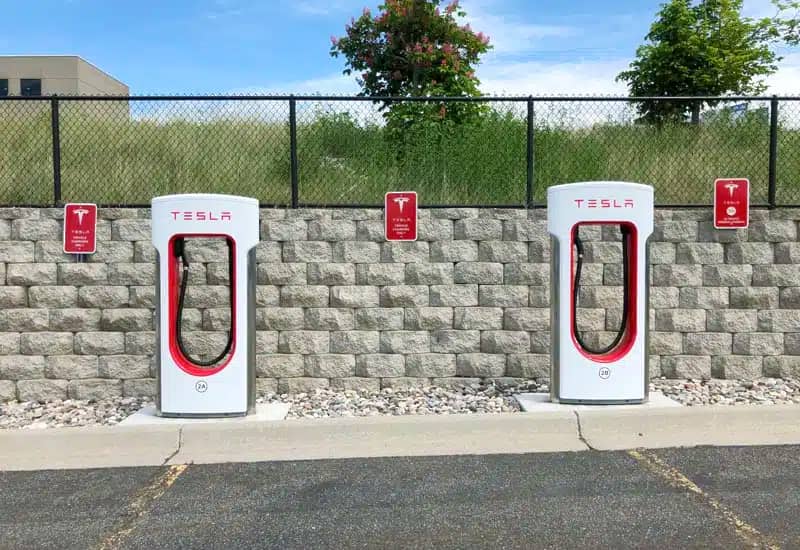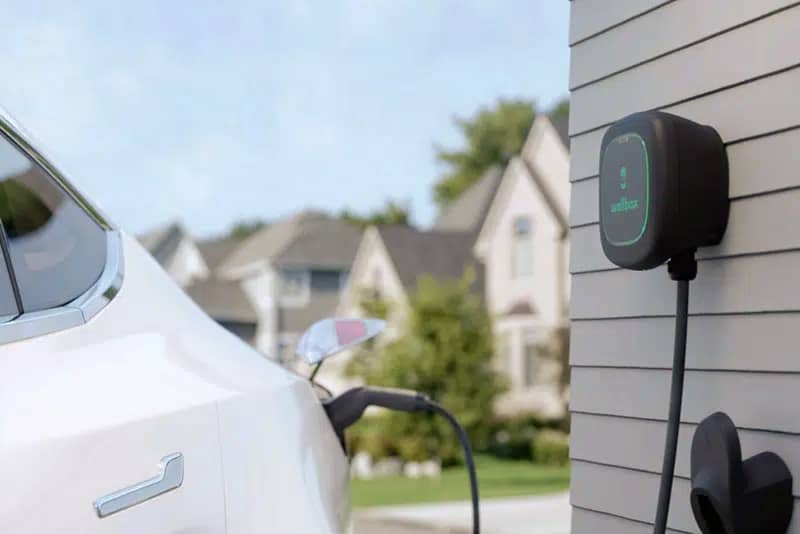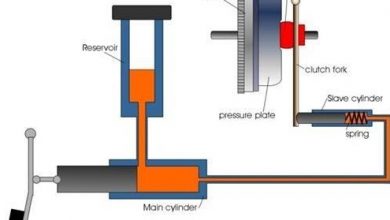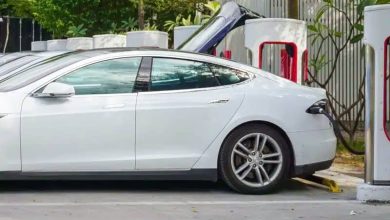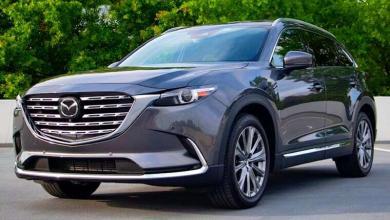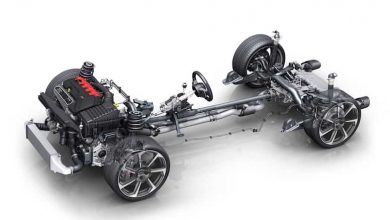Does It Cost too Much To Charge a Tesla?
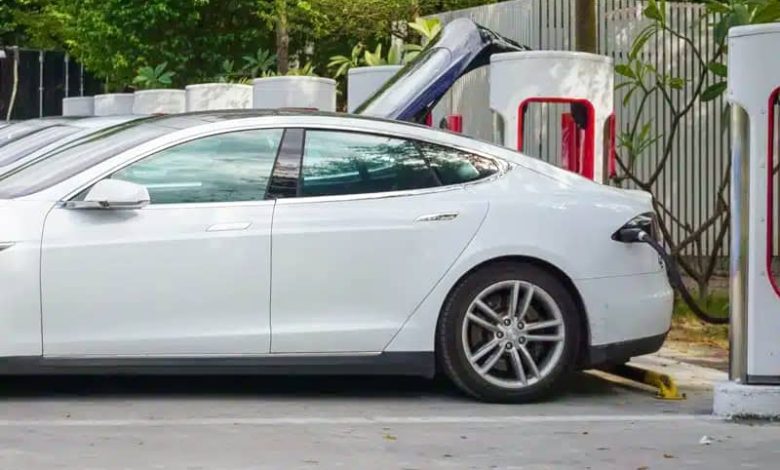
If you’re thinking about buying a Tesla, or if you are a Tesla owner you should know how much it cost to charge a Tesla. The answer isn’t straightforward and depends on which model Tesla you would like to own.
The average charging cost is $11 – $19 for a full charge at home with charging at a public charging station is much higher. To find out the exact cost to charge your Tesla you first have to know your Tesla’s battery capacity and if you’re going to charge it at home, a Tesla Supercharger Station, or other public charging station. So how much does it cost to charge a Tesla? Dardoor takes a look at the cost to charge current all Tesla models and gives you some insight so you can figure out the cost on your own.
Table of Contents
ToggleWays to charge a Tesla
Before we do the calculations to figure out the charging costs we have to explore charging options for Tesla. You can charge at home with a Level 1 or Level 2 charger. You can charge at public charging stations with Level 2 chargers or DC fast chargers. Tesla Superchargers are DC fast chargers. If you charge with any EV charger outside of a Tesla Wall Connector or Supercharger you will need to have an adaptor with you.
Charging with a Level 1 EV charger is not recommended. A Level 1 charger comes with the purchase of your Tesla and plugs into a typical household outlet. It can take days to fully charge a Tesla vehicle with Level 1 charging station, especially with the newer models which have higher battery capacities. If you only plan to drive your Tesla once a month Level 1 charging could be a feasible option.
A Level 2 charger is the best option for charging Tesla especially if you plan to charge it at home. You can usually fully charge a Tesla in 8 to 2 hours with a home level 2 charger making it an excellent option for an overnight charge. Charging at home is much cheaper than charging on the road at a Supercharger. While a Supercharger or other DC fast charger is the quickest way to charge – sometimes as quick as 80% of a battery in 15 minutes – it is not recommended for daily charges due to the amount of energy they use. Doing so could drain your Tesla battery quicker and shorten its lifespan.
Level 1 and Level 2 charging stations are alternating current (AC) chargers. Tesla battery uses direct current (DC) electricity. When you use AC chargers the AC needs to be converted into DC by Tesla. For this reason, the efficiency of AC chargers is not 100%, especially when you get closer to a full charge. The efficiency of AC chargers is 80 – 90%. However, DC fast charging stations deliver the accurate current directly to the battery and do not need to be converted, i.e. there is no AC/DC converter between the charging source (AC) and the battery bank (DC), so charging efficiencies for Superchargers and other DC fast chargers is 90% – 99%. For the sake of our calculations, we will use 85% and 95%.
Charging your Tesla at Home vs Charging at a Supercharger
How much does it cost to charge Tesla at home?
When you charge Tesla EV at home you will only have to pay for the electricity it takes to charge it (outside of the charger and installation costs). In the case of average electricity rates, according to the U.S. Energy Information Administration, the average electricity rate is about $0.16 per kilowatt hour (kWh).
How much does it cost to Supercharge Your Tesla?
Supercharger rates depend on location and the price of electricity at the time you’re charging. The average cost is $0.28 per kWh. If you charge with other public charging stations the price varies between different EV charging networks. Some networks offer cheaper charging costs for EV drivers who sign up for a monthly or an annual subscription. The average price to charge at a public charging station is $0.30 – $0.80 per kWh (compared to $0.16 per KWh at home).
How long does your Tesla Supercharger take?
When you charge with a Supercharger, you’ll only want to charge to 80% so you can quickly get back on the road. Just like your cell phone, a Tesla car charges more quickly when it is at a low state of charge. Once the state of charge is above 80% it charges at a much slower rate. If you’re charging at home, you won’t have to worry about how long it takes to charge since it will usually be an overnight charge. How long it takes to charge with a Supercharger depends on which Tesla model you’re driving. For example, a Tesla Model S will take about 20 – 30 minutes to charge to 80%. If you have a Tesla Model 3, it will take about 25 – 30 minutes to charge to 80%. Nevertheless, Tesla Model Xs and Ys will take about 30 minutes to charge to an 80% state of charge.
How much does it cost to charge your Tesla Model S?
Both the Long Range and Model S Plaid have a 100-kilowatt hour (kWh) battery pack, which makes our math calculation simpler when figuring out how much it costs to charge one.
To find out how much it costs to charge one at home, we’ll use $0.16 as the average cost of electricity. So, to reach 100 kWh, it would be $16 to fully charge a Tesla Model S. Yet, we have to add another factor in the efficiency of a Level 2 charger as being about 85%, which means we need to add an additional 15% of more energy consumption. Which means it costs about $18.82 to fully charge a Tesla Model S at home.
The cost to charge fully charge a Tesla Model S at a Supercharger would be on average $27.46.
How much does it cost to charge your Tesla Model 3?
The Tesla Model 3 gets a bit more complicated since there are three different versions with different battery capacities and they are NOT 100 kWh. The Tesla Model 3 RWD has a 50 kWh battery, while the Long Range and Performance Model 3s come with 82 kWh batteries.
To charge your Tesla Model 3 at home we need to use our average electricity cost of $0.16 per kWh again. To fully charge a Tesla Model 3 battery it would cost $8. Factoring in the additional 85% for inefficiency, we are looking at about $9.41 to fully charge a Tesla Model 3 RWD at home. Therefore, the cost to fully charge a Tesla Model 3 RWD at a Supercharger would be about $14.76.
To fully charge a Tesla Model 3 Long Range or Performance at home we need to use the same formula as above and it comes to about $15.44. To fully charge a Tesla Model 3 Long Range or Performance it would could about $28.20.
How much does it cost to charge your Tesla Model X?
The Tesla Model X and Tesla Model X Plaid all come with 100 kWh batteries. This means the cost to fully charge it would be equal to Tesla Model S – $18.82 at home or $27.46 at a Supercharger.
How much does it cost to charge your Tesla Model Y?
The Tesla Model Y and the Model Y Long Range and Performance versions all come equipped with an 81 kWh battery. Using the same calculations and average rates as we did earlier, to fully charge a Tesla Model Y at home it would cost about $15.25 and roughly $23.87 at a Supercharger.
How much does it cost to charge an EV?
Tesla EV may be an older version or you don’t have a Tesla and own a different electric vehicle. You can find out how much it costs to charge any EV using the formula we used in this article as outlined below:
Find your EV’s battery capacity using the electric vehicle database or your owner’s manual. You can find your vehicle’s specification sheet for more details as well.
If you are charging at home, visit the Energy Information Administration’s average electricity rates table to find your state’s average electricity rate. You can also average out your own personal rate by going through your electricity bills.
If you are charging at a Supercharger or other public charging station, look at their rates for per kWh and use that in the equation.
1. Using the Tesla Model X charging at home with the average U.S. household electricity rate as an example:
2. Account for charger inefficiency, 85% for AC chargers and 95% for DC fast chargers
3. Add up to the total.
If you want to further calculate your costs by finding how much it costs per mile take your total cost to fully charge your EV battery and divide it by your EV’s range.
For example, the Tesla Model X has a 348-mile range.
How To Get an EV Home Charger
I think it’s obvious now that If you want to charge your EV or your Tesla the cheaper way, charge at home. All you need is to get a Level 2 home charger installed. You won’t be able to safely do it yourself since home chargers require special electrical connections that need to be installed by a certified electrician. Dardoor is the smartest way to get a home charging station. We take care of all the heavy lifting for you – from helping you select the right and best charger for you to managing the entire installation process.
Download Related Books:
- AC Motor Control and Electrical Vehicle Applications.
- Advanced Hybrid and Electric Vehicles System Optimization and Vehicle Integration.
- Electric and Hybrid Vehicles Technologies Modeling and Control a Mechatronic Approach.
- Hybrid electric and fuel cell vehicles second edition.
- Hybrid electric vehicles principles and applications with practical perspectives.
- Hybrid electric vehicles principles and applications with practical perspectives second edition.
- Hybrid systems optimal control and hybrid vehicles theory methods and applications.
- Hybrid vehicles and hybrid electric vehicles new developments energy management and emerging technologies.
- Modern electric hybrid electric and fuel cell vehicles fundamentals theory and design second edition.


